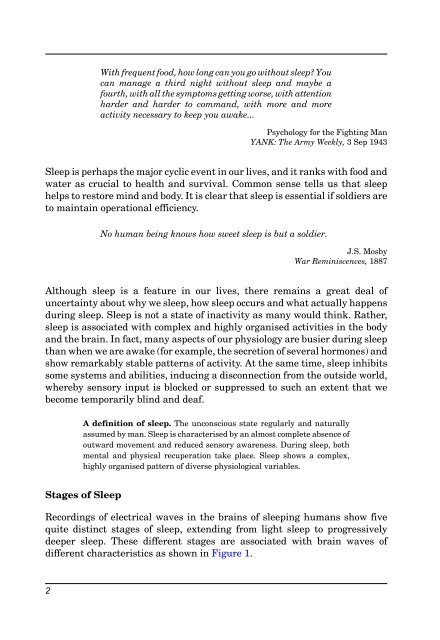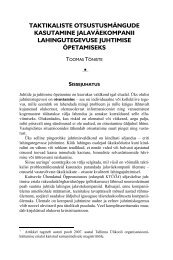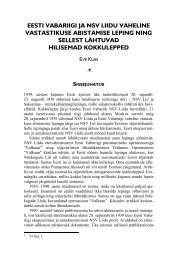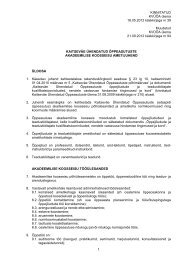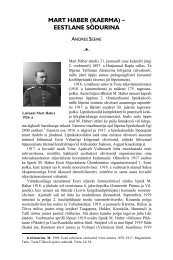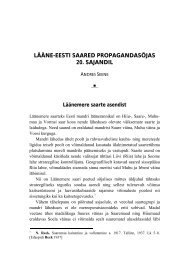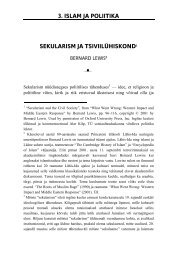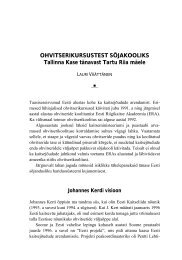Fatigue Management
Fatigue Management
Fatigue Management
Create successful ePaper yourself
Turn your PDF publications into a flip-book with our unique Google optimized e-Paper software.
With frequent food, how long can you go without sleep? You<br />
can manage a third night without sleep and maybe a<br />
fourth, with all the symptoms getting worse, with attention<br />
harder and harder to command, with more and more<br />
activity necessary to keep you awake...<br />
Psychology for the Fighting Man<br />
YANK: The Army Weekly, 3 Sep 1943<br />
Sleep is perhaps the major cyclic event in our lives, and it ranks with food and<br />
water as crucial to health and survival. Common sense tells us that sleep<br />
helps to restore mind and body. It is clear that sleep is essential if soldiers are<br />
to maintain operational efficiency.<br />
No human being knows how sweet sleep is but a soldier.<br />
J.S. Mosby<br />
War Reminiscences, 1887<br />
Although sleep is a feature in our lives, there remains a great deal of<br />
uncertainty about why we sleep, how sleep occurs and what actually happens<br />
during sleep. Sleep is not a state of inactivity as many would think. Rather,<br />
sleep is associated with complex and highly organised activities in the body<br />
and the brain. In fact, many aspects of our physiology are busier during sleep<br />
than when we are awake (for example, the secretion of several hormones) and<br />
show remarkably stable patterns of activity. At the same time, sleep inhibits<br />
some systems and abilities, inducing a disconnection from the outside world,<br />
whereby sensory input is blocked or suppressed to such an extent that we<br />
become temporarily blind and deaf.<br />
A definition of sleep. The unconscious state regularly and naturally<br />
assumed by man. Sleep is characterised by an almost complete absence of<br />
outward movement and reduced sensory awareness. During sleep, both<br />
mental and physical recuperation take place. Sleep shows a complex,<br />
highly organised pattern of diverse physiological variables.<br />
Stages of Sleep<br />
Recordings of electrical waves in the brains of sleeping humans show five<br />
quite distinct stages of sleep, extending from light sleep to progressively<br />
deeper sleep. These different stages are associated with brain waves of<br />
different characteristics as shown in Figure 1.<br />
2


